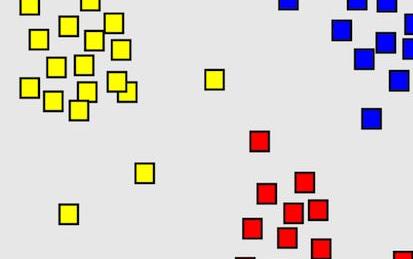

Our Courses

Create attractive infographics with Creately
This project allows you to discover Creately, an online software to design Infographics. You will understand the various features of the platform and be able to create personalized and professional infographics for your business. You will have all the basic skills to use Creately easily and quickly to create infographics for your brand.
-
Course by

-
 Self Paced
Self Paced
-
 3 hours
3 hours
-
 English
English

HubSpot: Working with a ticketing system
We will begin this guided project by understanding what Hubspot is. We will explore the contacts, conversation, marketing, sales & service sections of Hubspot. Then we will integrate Hubspot with Gmail and Calendar. In the final tasks, we will create a support ticket and explore the ticket flow from ticket creation to its closing This course will be helpful to you if you are a small business and want to track everything from sales to marketing to customer support to operations in one place.
-
Course by

-
 Self Paced
Self Paced
-
 2 hours
2 hours
-
 English
English

Israel State and Society
Israel is a country that draws a lot of public attention around the globe. Nevertheless, both those who support Israel and those who are critical of its geopolitical standing and policies, usually have a very limited knowledge about the Israeli society and its political system. This course presents Israel from multiple perspectives - political, social, economic and cultural - in an attempt to expose the learners to a cutting edge academic research on the country. Each of the 13 sessions is focused on one aspect of the Israeli society.
-
Course by

-
 Self Paced
Self Paced
-
 22 hours
22 hours
-
 English
English

Fundamentals of Database Systems
In this project you will learn to identify the components of a database system, also sometimes referred to as an information system. As you examine a database system and diagram a database, you will gain an understanding of how those components interact and fit together. The overall purpose of the database system is to store and provide access to secure, relevant, timely, accurate data which can be presented as information used for making business decisions.
-
Course by

-
 Self Paced
Self Paced
-
 2 hours
2 hours
-
 English
English

Use C# streams to read and write file data
By the end of this project, you will Use C# streams to read and write file data in a C# program.
-
Course by

-
 Self Paced
Self Paced
-
 2 hours
2 hours
-
 English
English

Amazon Echo Reviews Sentiment Analysis Using NLP
In this hands-on project, we will predict customer sentiment using natural language processing techniques.
-
Course by

-
 Self Paced
Self Paced
-
 2 hours
2 hours
-
 English
English

Cluster Analysis using RCmdr
In this 1-hour long project-based course, we will show you how to do cluster analysis using RCmdr using the k means method and Hierarchical method.
-
Course by

-
 Self Paced
Self Paced
-
 3 hours
3 hours
-
 English
English

App Engine: Qwik Start - Python
This is a self-paced lab that takes place in the Google Cloud console. This hands-on lab shows you how to create a small App Engine application that displays a short message.
-
Course by

-
 Self Paced
Self Paced
-
 1 hour
1 hour
-
 English
English

Classical Cryptosystems and Core Concepts
Welcome to Introduction to Applied Cryptography. Cryptography is an essential component of cybersecurity. The need to protect sensitive information and ensure the integrity of industrial control processes has placed a premium on cybersecurity skills in today’s information technology market. Demand for cybersecurity jobs is expected to rise 6 million globally by 2019, with a projected shortfall of 1.5 million, according to Symantec, the world’s largest security software vendor. According to Forbes, the cybersecurity market is expected to grow from $75 billion in 2015 to $170 billion by 2020.
-
Course by

-
 Self Paced
Self Paced
-
 12 hours
12 hours
-
 English
English

Design a Business Model Canvas with Miro
This project allows you to create a Business Model Canvas with Miro, an online tool for creating professional graphic visuals and remote collaborative work. You will understand the various features of the platform and you will have all the basic skills to create a Business Model Canvas or economic model for your project with ease. You will learn how to use Miro to easily build your Business Model Canvas and you will be able to present it with clarity. This project is intended for people wishing to develop their professional project or create one.
-
Course by

-
 Self Paced
Self Paced
-
 3 hours
3 hours
-
 English
English

Build a Website using an API with HTML, JavaScript, and JSON
In this project, you’ll support a European travel agency’s effort to increase booking by building a webpage that provides visitors with a 7-day weather forecast for major European cities. Accomplishing this task will require you to retrieve real-time weather data from an external service. In creating the webpage, you’ll request, process, and present the weather data using HTML, JavaScript, and JSON.
-
Course by

-
 Self Paced
Self Paced
-
 3 hours
3 hours
-
 English
English

Value and Individual Decision Making
This course is part of a Specialization titled “Strategy and Finance for a Lifecycle of a Social Business”. It is an introduction to time value of money and will help the learner understand the basics of finance with the ultimate goal of valuing a company from a societal lens. The beauty of the modern decision-making framework is that it can be used to understand value creation at any level – the individual, the corporate or nonprofit entity level and from the point of view of society.
-
Course by

-
 Self Paced
Self Paced
-
 26 hours
26 hours
-
 English
English

Crystal Structures and Properties of Metals
In this course, we will present atomic bonding and its relation to crystal structure and physical properties. A particular focus will be on the different types of cubic structures. There will be an introduction to planes and Miller Indices. We will discuss the principal planes in the cubic system. Their common crystallographic defects will be shown and discussed. Finally, the tensile test will be used to extract various materials parameters.
-
Course by

-
 Self Paced
Self Paced
-
 24 hours
24 hours
-
 English
English

Mental Health and Resilience for Healthcare Workers
This course will help institutions and individuals better manage the mental health challenges of being a healthcare worker. Healthcare providers such as the University Health Network (UHN) address the mental health needs of their staff through several initiatives intended to help build resilience and to provide respite from the demands of their work. This was critical during the pandemic but, of course, healthcare workers encounter high levels of stress even without a pandemic.
-
Course by

-
 Self Paced
Self Paced
-
 5 hours
5 hours
-
 English
English

Chimpanzee Behavior and Conservation
Chimpanzees are one of our closest living relatives, yet almost nothing was known about their behavior in the wild until Jane Goodall started her groundbreaking study of the chimpanzees of Gombe, Tanzania in 1960. This study continues today, following the same chimpanzee families that Jane Goodall first encountered over 55 years ago. Guided by three course instructors who have lived and worked with the Gombe chimpanzees, you will learn how Goodall’s early discoveries changed our view of human uniqueness.
-
Course by

-
 Self Paced
Self Paced
-
 15 hours
15 hours
-
 English
English

Sensor Manufacturing and Process Control
"Sensor Manufacturing and Process Control" can also be taken for academic credit as ECEA 5343, part of CU Boulder’s Master of Science in Electrical Engineering degree. This is our fourth course in our specialization on Embedding Sensor and Motors. To get the most out of this course, you should first take our first course entitled "Sensors and Sensor Circuits", our second course entitled "Motor and Motor Control Circuits", and our third course entitled "Pressure, Force, Motion, and Humidity Sensors".
-
Course by

-
 Self Paced
Self Paced
-
 55 hours
55 hours
-
 English
English

Using Cloud Trace on Kubernetes Engine
This is a self-paced lab that takes place in the Google Cloud console. This lab deployings a Kubernetes Engine cluster, then a simple web application fronted by a load balancer is deployed to the cluster. The web app publishes messages provided by the user to a Cloud Pub/Sub topic. You will see the correlated telemetry data from HTTP requests to the app will be available in the Cloud Trace Console.
-
Course by

-
 Self Paced
Self Paced
-
 1 hour
1 hour
-
 English
English

Reaching Vulnerable Groups through Pandemic Policy
This course aims to provide an in-depth reflection on social work in different contexts, hereby focusing on their needs, the way the contexts have been influenced, and different challenges that have occurred during the last two years.
-
Course by

-
 Self Paced
Self Paced
-
 6 hours
6 hours
-
 English
English

Building R Packages
Writing good code for data science is only part of the job. In order to maximizing the usefulness and reusability of data science software, code must be organized and distributed in a manner that adheres to community-based standards and provides a good user experience. This course covers the primary means by which R software is organized and distributed to others. We cover R package development, writing good documentation and vignettes, writing robust software, cross-platform development, continuous integration tools, and distributing packages via CRAN and GitHub.
-
Course by

-
 Self Paced
Self Paced
-
 21 hours
21 hours
-
 English
English

Internet of Things Capstone: Build a Mobile Surveillance System
In the Capstone project for the Internet of Things specialization, you will design and build your own system that uses at least 2 sensors, at least 1 communication protocol and at least 1 actuator. You will have a chance to revisit and apply what you have learned in our courses to achieve a robust, practical and/or fun-filled project. We absolutely encourage you to design whatever you can think up! This is your chance to be creative or to explore an idea that you have had. But if you don’t have your own idea, we provide the description of a surveillance system, for you to build.
-
Course by

-
 Self Paced
Self Paced
-
 5 hours
5 hours
-
 English
English

Automate an e-commerce web application using Selenium & Java
In this 1-hour long project-based course, you will learn - 1.
-
Course by

-
 Self Paced
Self Paced
-
 4 hours
4 hours
-
 English
English

Scripting with Python and SQL for Data Engineering
In this third course of the Python, Bash and SQL Essentials for Data Engineering Specialization, you will explore techniques to work effectively with Python and SQL. We will go through useful data structures in Python scripting and connect to databases like MySQL. Additionally, you will learn how to use a modern text editor to connect and run SQL queries against a real database, performing operations to load and extract data. Finally, you will use extracted data from websites using scraping techniques.
-
Course by

-
 Self Paced
Self Paced
-
 18 hours
18 hours
-
 English
English

Aruba SD WAN Basics
The Wide Area Network (WAN) is the focal point for connecting different sites of an organization in a global environment. In Aruba SD-WAN Basics, you’ll get an introduction to the Wide Area Network (WAN) and how Software Defined-WAN (SD-WAN) addresses today’s IT challenges. We’ll look at how SD-WAN simplifies network operations with automation and provide greater visibility to manage security challenges. Learn the fundamentals of how the Aruba SD-WAN solution works with EdgeConnect SD-WAN Fabric to simplify deployment, operations, and monitoring.
-
Course by

-
 Self Paced
Self Paced
-
 3 hours
3 hours
-
 English
English

Blockchain 360: A State of the Art for Professionals
Businesses are currently dealing intensively with digital transformation. Blockchain has a major impact on the design and implementation of digital business processes in many application areas such as the Internet of Things, the Smart Grid, supply chain, and many more.
-
Course by

-
 Self Paced
Self Paced
-
 4 hours
4 hours
-
 English
English

Data Analysis and Representation, Selection and Iteration
This course is the second course in the specialization exploring both computational thinking and beginning C programming. Rather than trying to define computational thinking, we’ll just say it’s a problem-solving process that includes lots of different components. Most people have a better understanding of what beginning C programming means! This course assumes you have the prerequisite knowledge from the previous course in the specialization. You should make sure you have that knowledge, either by taking that previous course or from personal experience, before tackling this course.
-
Course by

-
 Self Paced
Self Paced
-
 11 hours
11 hours
-
 English
English



